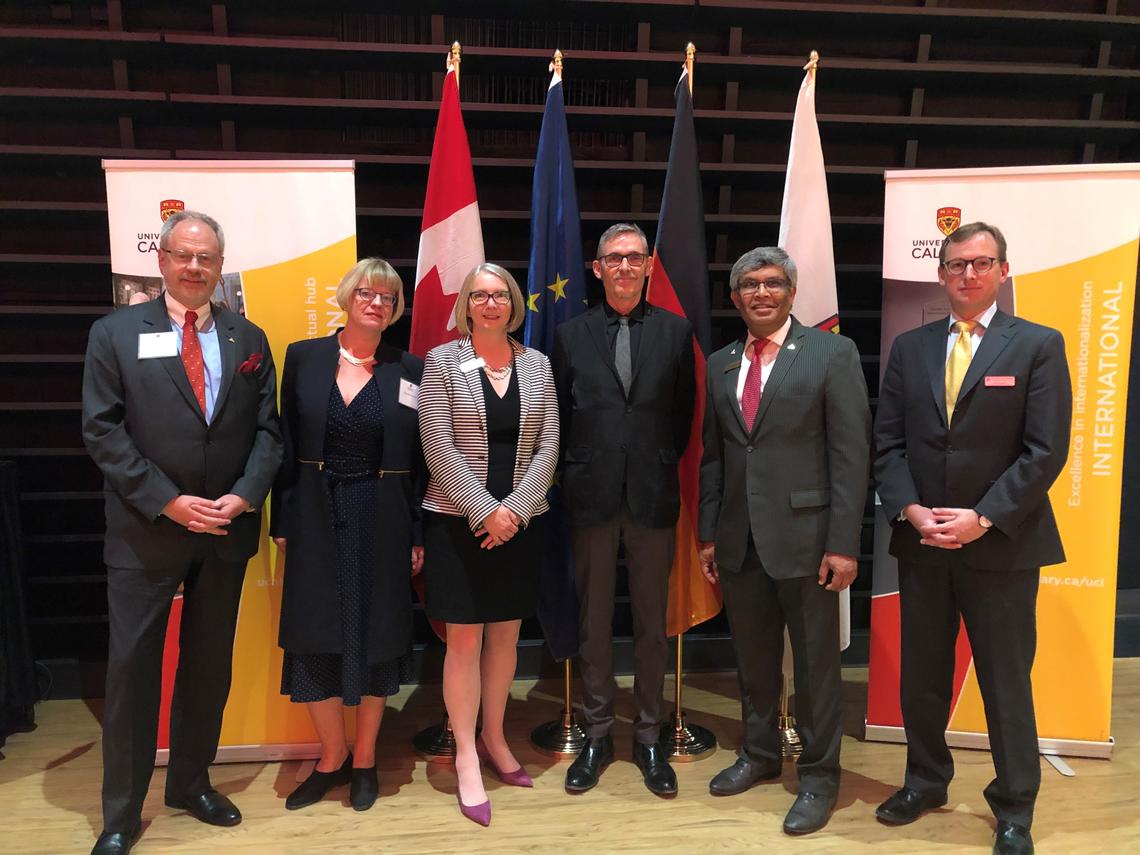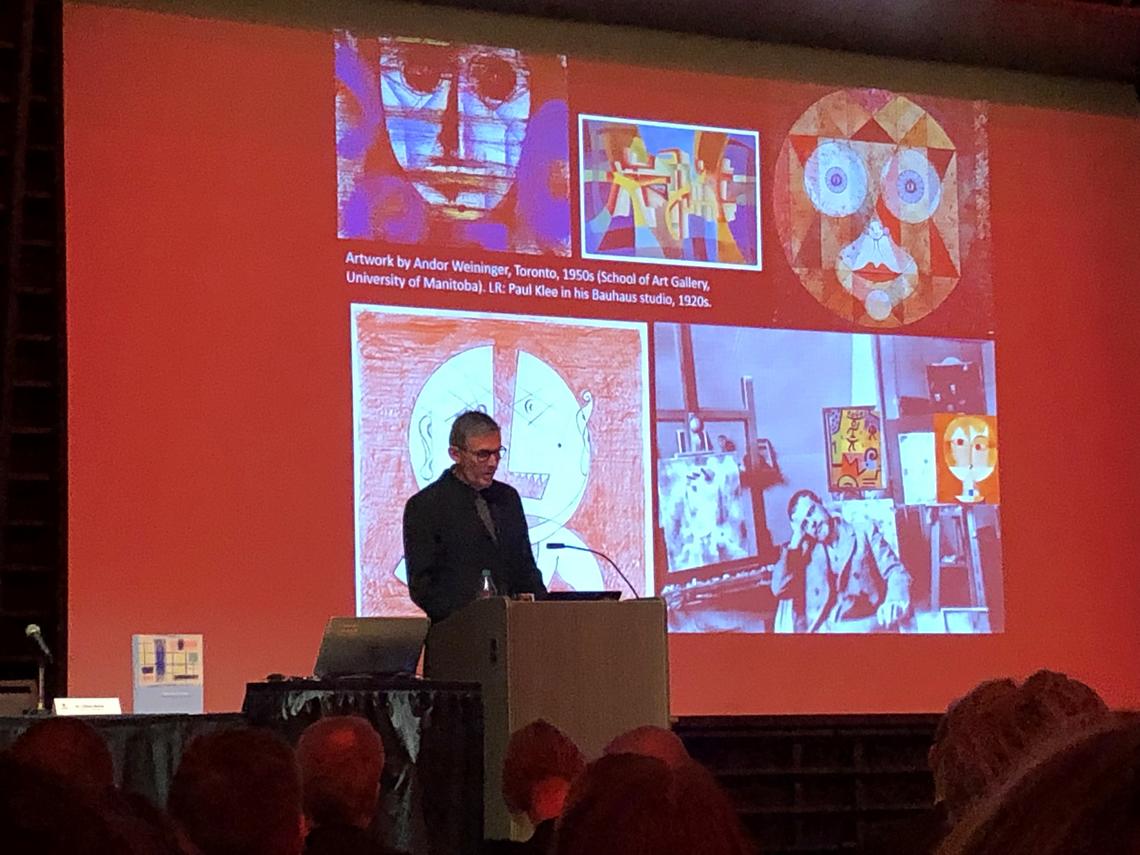Oct. 23, 2019
100 years later, Bauhaus leaves its impact on UCalgary and around the globe

Over 200 members of the Calgary community came to campus to mark the University of Calgary’s annual Germany Day this month, celebrating German culture and UCalgary’s many ties to the country. This year the event focused on the 100-year anniversary of Bauhaus.
A German school of art and design, Bauhaus operated from 1919 to 1933. The style taught at the school became one of the most influential currents of modern design. Bauhaus combines crafts and the fine arts, and calls for a union of industry and architecture. The school emphasized learning by doing and hired the most innovative artists of the time as teachers.
Dr. Oliver Botar, professor, School of Art, University of Manitoba, spoke at the event and shared his expertise on the impact that Bauhaus education had on both architecture and design in the Canadian scene and around the world over the past 100 years. “The Bauhaus has been universalized, whether it is the endless vista of International style apartment towers in Sao Paulo Brazil, the downtown core of Toronto, or the skyline in Calgary.”
Hallmarks of the school were buildings of glass, flat roofs, tubular style furniture, and the use of basic shapes and bold primary colours.
Despite closing due to Nazi pressure in the 1930s, the Bauhaus movement left its mark on architecture, design and art throughout the world. The influence is seen all around us today and has shaped the homes we live in and the offices we work in, including some on campus: the MacKimmie Tower, Taylor Institute for Teaching and Learning, and the EEEL building (picture above).
Almost half of Bauhaus was composed of women who played an important role at the school by weaving and revolutionizing the commercialization of textiles. Graphic design, typography, art and furniture designed for mass production were ideas that came out of Bauhaus.
“This is the 7th consecutive year that we have organized Germany Day after Germany was been identified as a country of emphasis in the University of Calgary’s International Strategy,” says Janaka Ruwanpura, vice-provost (international). “The university has many academic and research ties to Germany, it’s important we take time to reflect and educate ourselves on different cultures and also engage with our local community.”
"On Germany Day we celebrate Germany’s national holiday by inviting the whole community of Calgary to hear about important cultural or historical anniversaries in Germany," adds Hubertus Liebrecht, Honorary Consul of the Federal Republic of Germany.
This event was sponsored by University of Calgary International, Faculty of Arts, Bayer, Baymag, BASF and the Honorary Consul of the Federal Republic of Germany.

Celebrating Germany Day 2019 at the University of Calgary
Photo above, from left: Hubertus Liebrecht, Honorary Consul of the Federal Republic of Germany; Dr. Florentine Strzelczyk, deputy provost; Dr. Cheryl Dueck, senior academic director (international); Dr. Oliver Botar, professor, School of Art, University of Manitoba; Janaka Ruwanpura, vice-provost (international); and Dr. Gavin Cameron, associate dean, international and global initiatives, Faculty of Arts. Photo by Melanie Yar Khan, International

Oliver Botar, professor, School of Art, University of Manitoba.
Melanie Yar Khan, International
